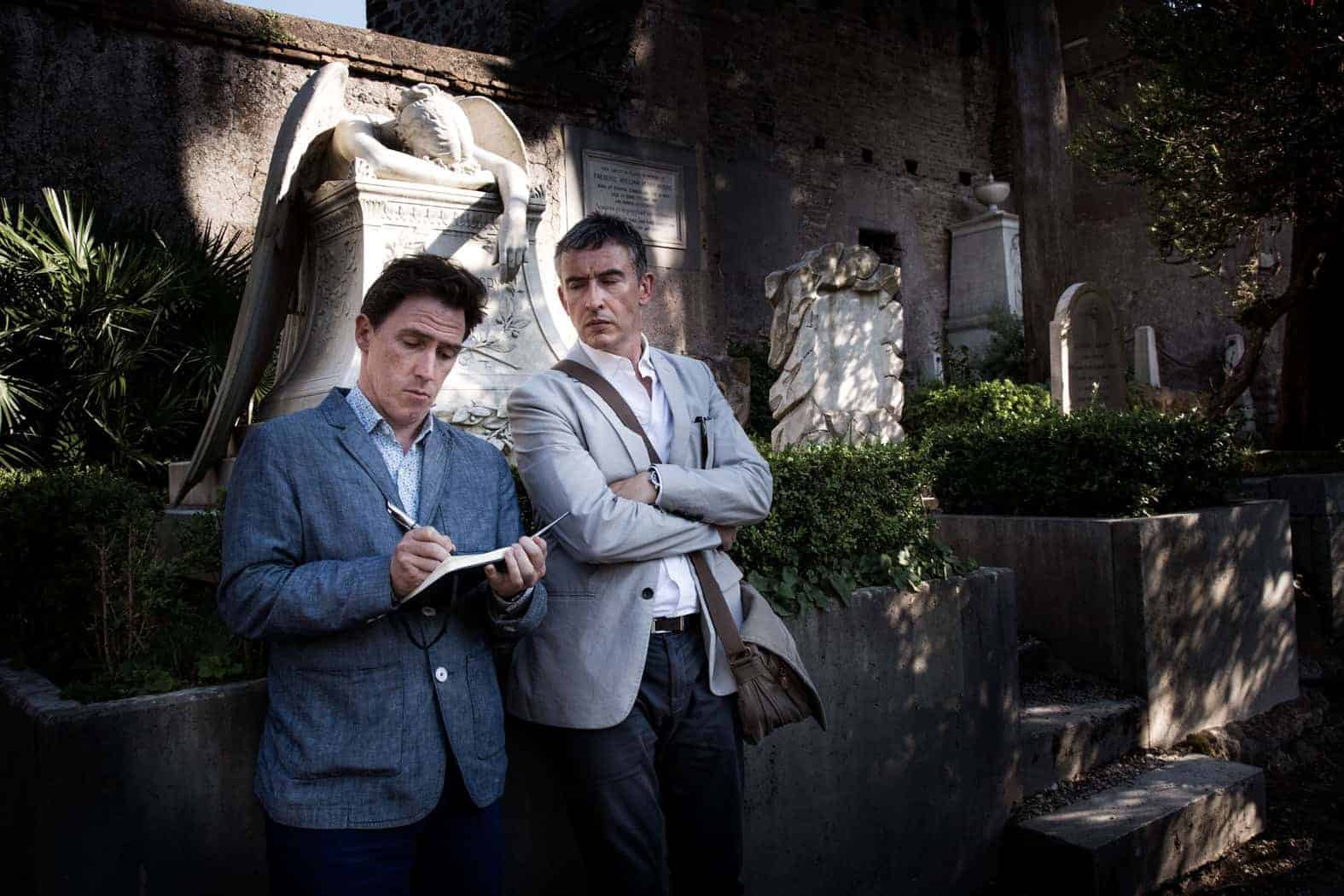Lenny Abrahamson’s charming, offbeat comedy film, Frank, tackles loneliness and mental health with wit and features great work by Domhnall Gleeson and Michael Fassbender.
Listen to our podcast on Lenny Abrahamson’s What Richard Did.
Listen to our podcast on Lenny Abrahamson’s series Normal People.

Irish director Lenny Abrahamson’s latest film, the charming, offbeat comedy, Frank, is about a talented musician (Michael Fassbender) who has chosen to live his life inside a paper mâché head, had its world premiere at this year’s Sundance Film Festival. We see Frank through the eyes of Jon (Domhnall Gleeson), an aspiring musician, who starts the film trying and failing to come up with an original composition: when a lady in a red coat walks by him, he writes the not so enlightened lyrics “lady in the red coat, what you doing with that bag?”. He’s a pathetic excuse for a grown man, still living with his parents and working a brainless cubicle job: he proudly tweets to his seven followers such gems as “Ham and cheese panini #livingthedream”.
By one of those movie magic happenstances, Jon finds himself on the beach when the American Band, Soronpfbs, which nobody including the band can pronounce, are struggling to prevent their keyboardist from committing suicide. They have a gig that night, and when Jon casually mentions he can play keyboards, they enlist him to play with them, although without any rehearsal.
As the lead singer and frontman of the Soronpfbs, the eponymous Frank hardly stands out as the strangest of the group. The band’s drummer Don (Scoot McNairy), who recruits Jon, used to have sex with mannequins; stopping was hard on Don because he had to convince real life women to lie perfectly still during sex. And Maggie Gyllenhaal plays the most obviously unstable member of the band, Clara, a terror wearing what you might expect your grandmother to find at a thrift shop, makes sport of terrifying Jon, and is in love with Frank. The fact that their music is some sort of mellow electronic alternative music only makes their eccentricities all the more believable.
The Soronpfbs are about to record a new album, so they invite Jon to join them in a remote Irish cottage for what he thinks will be a weekend session but turns into many months. As the newbie and the outsider, Jon copes with the lunacy of the band by posting updates about their endeavours, and Frank’s increasingly eccentric ideas about making music, to YouTube, Tumblr, and Twitter, where he slowly acquires more and more followers. And there are many laughs to be had from his unreliable narration of his experiences through social media. When the band runs out of rent money, he offers them his inheritance nest egg so that they can keep going, only to discover they have no interest in using his original compositions for the album #butigavethemmyfuckingnestegg.
Like the rest of the band, Jon is fascinated by Frank, whose paper mâche head makes him a bit of an enigma, and an easy target for projecting all of their hopes and dreams. Frank slowly forms a kinship with Jon when he realises Jon has found them fans – though he doesn’t understand that 50,000 views on YouTube is hardly viral – and is enthusiastic to finally have found a band member who shares his “passion for making extremely likable music”, a far cry from the inaccessible drivel they’d been performing before Jon came onboard.
In the film, Michael Fassbender gives a virtuoso physical performance as the affable Frank: we may never see his face, but that doesn’t prevent Fassbender from emoting or exhibiting impeccable timing. Abrahamson noted that when they started making the film, they thought they would be able to re-dub the lines if there were any difficulties, but Fassbender’s performance ended up being so physically precise that it wasn’t possible to change the timing of the lines. Fassbender hints that Frank’s adorable eccentricities are symptomatic of a deeper problem.
Although the subject matter of Frank couldn’t be more different from Lenny Abrahamson’s previous feature film, What Richard Did, they both present a charismatic and seemingly normal central character, and then slowly and empathetically peel back the complex layers that make him tick. Although there’s a gradual shift from farce to seriousness within Frank, it never stops being a comedy, and it never makes light of Frank’s mental illness.
Read more: Review: Domhnall Gleeson stars in Ex Machina >>

